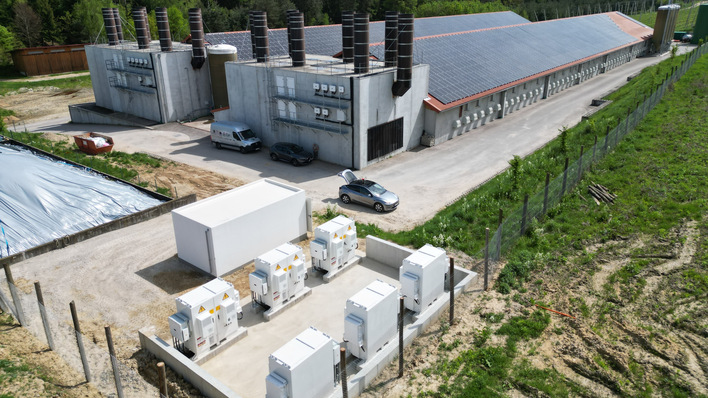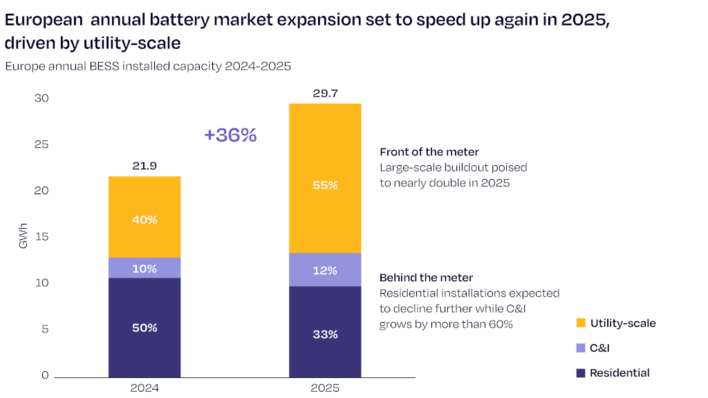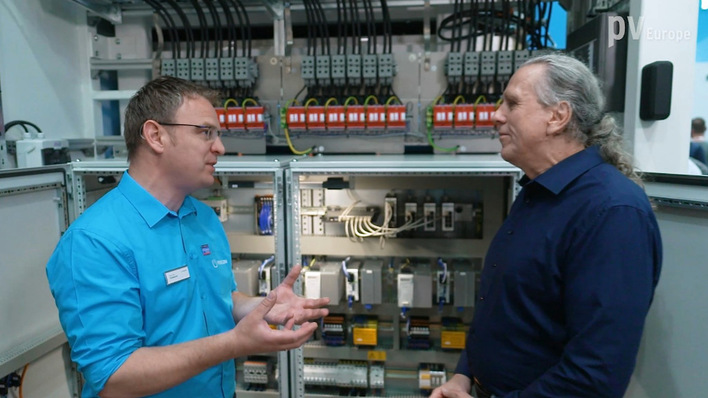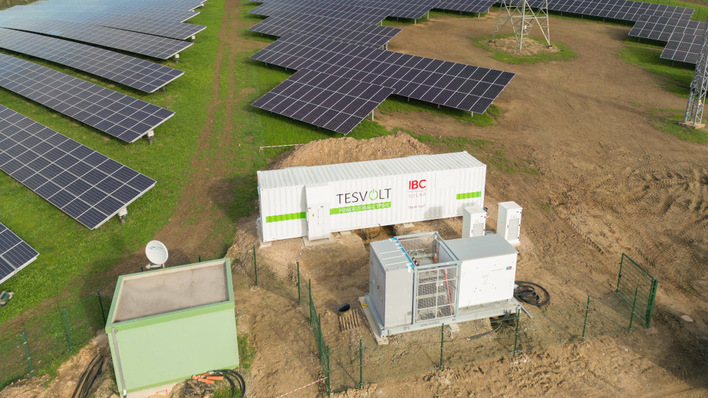How is the demand for storage units developing in the various commercial and large-scale storage segments?
We are seeing a significant increase in demand, particularly in the utility-scale storage segment. This is a change, especially with a view to 2022, where there has been a peak in demand for small and medium-sized commercial storage systems since the Russian invasion of Ukraine. Nevertheless, we continue to see double-digit growth rates in the commercial and industrial sector, i.e. for cabinet systems or smaller container solutions.
How do you expect demand to develop in the coming months?
We expect demand to increase in all segments, particularly for large storage solutions. However, due to the economic situation in Germany, Europe and the rest of the world, this will probably not develop at the same rate as in recent years.
See also: Daniel Hannemann of Tesvolt: "We have grown by around 30 per cent"
What do you attribute this development to?
Growth in the commercial and industrial sectors is slowing down due to the current interest rate situation and, depending on the region, uncertain political conditions. However, there are also plans for economic policy support programmes such as the Inflation Reduction Act in the US or the Growth Opportunities Act in Germany, which are intended to counteract these negative factors. In the area of large-scale storage, the market is benefiting from the increasing expansion of renewable energies and the resulting increase in volatility in the electricity market. Here, for example, we are seeing increased interest in the area of primary control power and arbitrage trading.
Which countries are growth markets?
In the regions relevant to us, we see potential above all in Germany, Italy and Spain - especially in the area of large-scale storage. The UK and the US are also interesting markets with good growth potential.
Which business models are relevant for commercial storage systems?
Self-consumption optimisation and peak load capping continue to be the most sought-after applications in the commercial and industrial sector. This is followed by applications in the area of backup power and zero feed-in as well as charging station control. The latter in particular indicate the ongoing structural reorganisation of the energy system.
What business models are used to set up the large storage containers - is it exclusively about grid operators who want to use them to stabilise grids or is there now also demand from solar park developers who combine the systems with storage units?
We are actually seeing an increase in demand from solar park developers. As with grid operators, this is primarily about grid services. However, the battery storage systems are not only intended to relieve the load on the electricity grid. The stored electricity is also marketed, for example via arbitrage transactions or participation in balancing power markets. In an international comparison, Germany still has some catching up to do here. Our European neighbours started supplementing photovoltaic parks with large-scale storage systems earlier.
How are storage prices developing in the various segments?
In light of the supply chains functioning again and the availability of goods, we are seeing a slight price reduction across all segments.
How is the competitive situation on the market developing - also with regard to non-European providers?
Unsurprisingly, new companies are currently entering Europe, particularly from China. Their products are characterised above all by low prices - and unfortunately also by inadequate certification and testing. This represents a risk for the customer that should not be underestimated and a major reputational risk for our industry.
Also interesting: Tesvolts expands into Italy for commerical battery storage systems
How are you responding to this competitive situation?
We are focussing on what we can do: high-quality, safe products, quick and competent advice for installers and a first-class after-sales service. Tesvolt also enjoys a high level of trust internationally in terms of these characteristics.
How relevant are after-sales services for customers when deciding in favour of a storage unit?
In our experience, a reliable and competent after-sales service is very important to installers. Particularly with more complex projects, a close dialogue between the installer and manufacturer makes it easier to implement the project quickly and to resolve any problems later on.
The questions were asked by Sven Ullrich.









